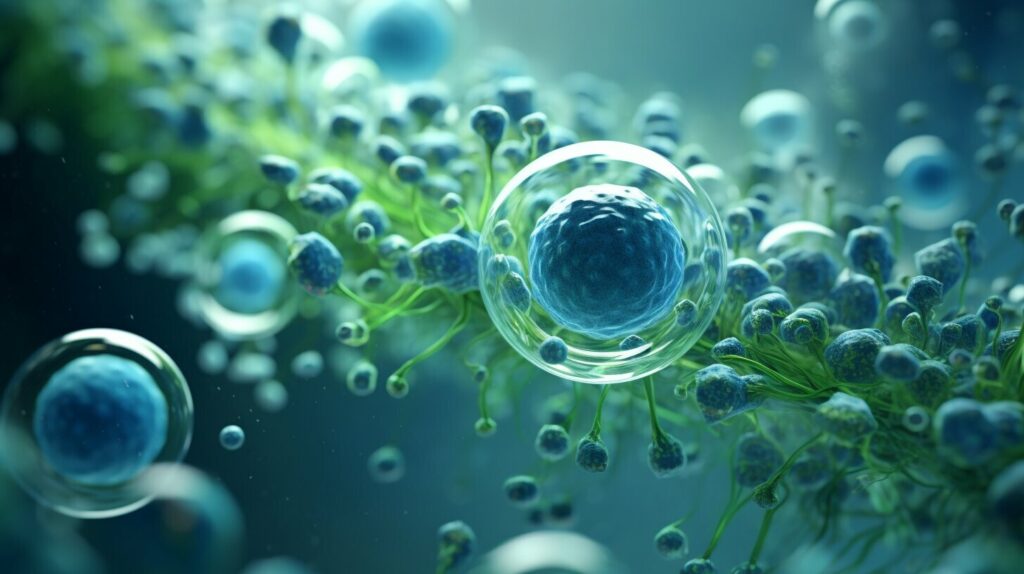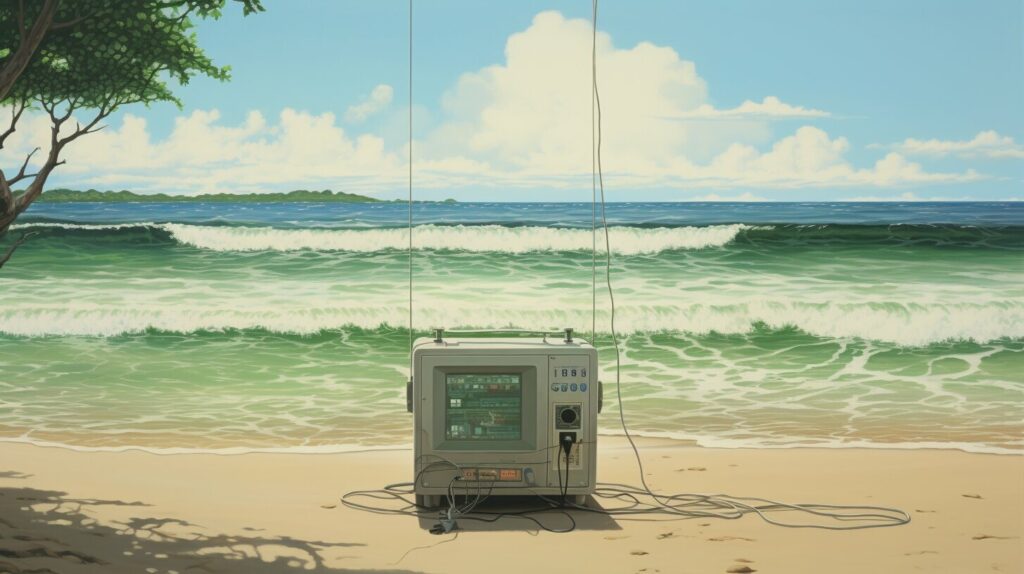Welcome to my comprehensive guide on how to water fast for both wellness and weight loss. Water fasting has gained popularity as a method for detoxification, weight management, and potential health benefits. In this guide, I will provide you with all the essential information you need to know to safely and effectively embark on a 7-day water fast.
Key Takeaways:
- Water fasting involves consuming only water for a specific period, typically 7 days.
- While it can lead to weight loss and other health benefits, it may not be safe for everyone.
- Before starting a water fast, consult with a healthcare professional to assess your suitability.
- Proper preparation, including physical and mental readiness, is crucial for a successful water fast.
- After completing the fast, reintroduce food gradually to avoid refeeding syndrome.
What Is a 7-Day Water Fast?
A 7-day water fast is a strict form of fasting where only water is consumed for the entire week. It is an extreme approach to fasting that requires discipline and careful consideration. During a 7-day water fast, individuals abstain from consuming any food and only drink water to sustain themselves. Some individuals may also allow non-caloric beverages like tea or coffee, as long as they do not add any calories to their daily intake.
It is important to follow a water fasting protocol and seek medical guidance before attempting a 7-day water fast. Consulting with a healthcare professional can help ensure that you are physically and mentally prepared for the fasting period. They can also provide guidance on any additional precautions or considerations that may be necessary based on your individual health status.
A 7-day water fast can be challenging both physically and mentally. It is important to approach it with a clear understanding of your goals and expectations. It is not recommended for everyone, especially those with certain medical conditions or who are pregnant or breastfeeding. Before embarking on a 7-day water fast, it is crucial to assess your overall health and consult with a healthcare professional to determine if it is safe for you.

Remember, a 7-day water fast should not be taken lightly. It is a significant commitment that requires careful planning and monitoring. If you decide to pursue this fasting method, make sure to educate yourself about the potential risks and side effects, and consult with a healthcare professional to ensure your safety throughout the process.
Is 7 Day Water Fasting Safe?
While short-term water fasting may have potential health benefits, a 7-day water fast can be intense and may not be safe for everyone. It is crucial to consult with a healthcare professional before attempting a 7-day water fast. Prolonged water fasting can lead to adverse health effects, including:
- Dehydration: Without sufficient food intake, the body can become dehydrated, leading to dizziness, fatigue, and lightheadedness.
- Muscle loss: During a water fast, the body may break down muscle tissue for energy, which can result in muscle loss.
- Nutrient deficiencies: Without consuming any food, essential nutrients like vitamins, minerals, and electrolytes may be lacking, potentially leading to deficiencies.
Additionally, individuals with certain medical conditions, such as chronic kidney disease or diabetes, should not attempt water fasting without medical guidance. It is essential to consider the potential risks and benefits of water fasting and work with a healthcare professional to ensure safety and proper monitoring throughout the fasting period.

How to Do a 7 Day Water Fast
Before embarking on a 7-day water fast, proper preparation is crucial for a successful experience. Here are some tips to help you get ready and make the most of your fast:
- Start with shorter fasts: If you’re new to water fasting, it’s a good idea to begin with shorter fasts to prepare your body. Try intermittent fasting or a 24-hour water fast to acclimate yourself to the fasting process.
- Mindful food choices: In the days leading up to your 7-day water fast, focus on consuming nutrient-rich foods. Avoid processed foods, sugary beverages, and alcohol. Opt for whole foods, vegetables, fruits, lean proteins, and healthy fats.
- Stay hydrated: Hydration is key during a water fast. Leading up to your fast, make sure you are adequately hydrated. During the fast, drink plenty of water to prevent dehydration and support your body’s cleansing processes.
- Create a support system: Going through a 7-day water fast can be challenging both physically and mentally. Surround yourself with a supportive network of friends or family who understand and encourage your fasting journey.
“Proper preparation is crucial for a successful 7-day water fast. Starting with shorter fasts, mindful food choices, staying hydrated, and creating a support system can greatly contribute to a positive fasting experience.”
Remember, water fasting may not be suitable for everyone. It’s important to consult with a healthcare professional before attempting a 7-day water fast, especially if you have underlying health conditions or are taking medications. They can provide personalized guidance and ensure your safety throughout the fasting process.
| Tips for Successful Water Fasting | Preparing for a 7 Day Water Fast |
|---|---|
| Start with shorter fasts | Consult with a healthcare professional |
| Mindful food choices | Stay hydrated throughout the fast |
| Stay hydrated | Create a support system |
By following these tips and taking the necessary precautions, you can better prepare yourself for a 7-day water fast and increase the likelihood of a successful and rewarding experience. Remember to listen to your body, prioritize self-care, and seek professional guidance throughout your fasting journey.
What Happens During a 7 Day Water Fast?
During a 7-day water fast, the body goes through several phases of fasting, including ketosis and autophagy. These processes play a key role in the potential health benefits of water fasting.
Ketosis
One of the primary changes that occur during a 7-day water fast is ketosis. In the absence of carbohydrates from food, the body begins to break down stored fat and convert it into ketones, which can be used as an alternative source of energy. This shift in fuel source can lead to weight loss and reduced body fat.
However, it is important to note that entering ketosis can also cause temporary side effects, such as fatigue, bad breath, and changes in urine odor. These symptoms typically subside as the body adapts to using ketones for energy.
Autophagy
Another notable process that occurs during a 7-day water fast is autophagy. Autophagy is a cellular mechanism that involves the breakdown and recycling of damaged or dysfunctional cells. It is a natural process that helps to maintain cellular health and may have potential benefits for various health conditions.
Research suggests that autophagy may contribute to the anti-aging effects of water fasting and could help protect against certain diseases, including cancer and neurodegenerative disorders. However, more studies are needed to fully understand the effects of autophagy and its implications for human health.
| Phases of Fasting | Key Processes |
|---|---|
| Ketosis | Body begins to burn stored fat for energy, leading to weight loss and reduced body fat. |
| Autophagy | Cellular mechanism of cleaning up damaged cells, potentially contributing to anti-aging effects and disease prevention. |
Overall, a 7-day water fast can trigger these beneficial processes in the body. However, it is important to approach water fasting with caution and under the guidance of a healthcare professional, as it may not be suitable for everyone and can have potential risks and side effects.

What to Eat After a 7 Day Water Fast
After completing a 7-day water fast, it is important to gradually reintroduce food to avoid refeeding syndrome, a potentially dangerous condition. The body has been in a state of fasting for an extended period, and sudden reintroduction of solid foods can overwhelm the digestive system and lead to complications. A slow and mindful approach to refeeding is crucial for a safe and successful transition back to a regular diet.
One recommended strategy is to start with easily digestible foods such as fermented foods, bone broth, and cooked vegetables. Fermented foods like sauerkraut and kimchi are rich in probiotics, which can help support gut health. Bone broth is packed with nutrients and can provide a gentle introduction to protein. Cooked vegetables provide essential vitamins and minerals while being gentle on the digestive system.
Individualized guidance from a healthcare team is highly recommended during the refeeding process. They can provide personalized recommendations based on your specific health needs and goals. It is important to listen to your body and pay attention to any signs of discomfort or digestive issues. Slowly increase the complexity and variety of your meals over time, allowing your body to adjust to solid foods again.
| Refeeding After a 7 Day Water Fast | Recommended Foods |
|---|---|
| Day 1-2 | Start with bone broth and diluted vegetable juices. Avoid solid foods. |
| Day 3-4 | Introduce soft and easily digestible foods like cooked vegetables, fermented foods, and soups. |
| Day 5-6 | Add lean proteins like chicken or fish to your meals, along with healthy fats like avocados and nuts. |
| Day 7 and beyond | Gradually reintroduce more complex foods, including whole grains, fruits, and a wider variety of vegetables. |
Remember to stay hydrated and listen to your body’s hunger and fullness cues throughout the refeeding process. Be patient with yourself and give your body the time it needs to readjust to regular eating. Refeeding after a 7-day water fast is a delicate process, and seeking professional guidance is essential for a safe and healthy transition back to a balanced diet.

Health Benefits of Water Fasting
Water fasting has been associated with several health benefits, including weight loss, reduced blood pressure, and improved overall well-being. While the research on water fasting is limited, some studies have shown promising results in these areas.
One of the main benefits of water fasting is its potential to promote weight loss. When the body is in a fasting state, it relies on stored fat for energy, leading to a decrease in body weight and body fat percentage. This can be especially beneficial for individuals looking to jumpstart their weight loss journey or break through a weight loss plateau.
Additionally, water fasting has been shown to have a positive impact on blood pressure levels. High blood pressure is a common health concern that can increase the risk of heart disease and stroke. By allowing the body to enter a fasting state, water fasting may help lower blood pressure and improve cardiovascular health.
| Health Benefits of Water Fasting: |
|---|
| Weight loss |
| Reduced blood pressure |
| Improved insulin sensitivity |
| Promotes cell recycling (autophagy) |
Furthermore, water fasting has been suggested to improve insulin sensitivity, which is crucial for individuals with insulin resistance or type 2 diabetes. By giving the body a break from constant food intake, water fasting may help restore insulin sensitivity and better regulate blood sugar levels.
Lastly, water fasting has been associated with the promotion of autophagy, a cellular process that involves the recycling and removal of damaged cells. This process may contribute to overall cellular health and potentially protect against certain diseases.

The Potential Benefits of Water Fasting:
- Weight loss
- Reduced blood pressure
- Improved insulin sensitivity
- Promotes cell recycling (autophagy)
Water fasting has the potential to support weight loss, decrease blood pressure, improve insulin sensitivity, and promote cell recycling. However, it is important to note that water fasting should be approached with caution and under the guidance of a healthcare professional.
Risks of Water Fasting
While water fasting can have potential health benefits, it also carries certain risks that individuals should be aware of before attempting this extreme form of fasting. It is important to carefully consider these risks and consult with a healthcare professional before embarking on a water fast.
1. Nutrient Deficiencies:
During a water fast, the body is deprived of essential nutrients that are normally obtained from food. This can lead to deficiencies in vitamins, minerals, and other important nutrients. Prolonged nutrient deficiencies can have detrimental effects on overall health and wellbeing.
2. Dehydration:
Without consuming food, the body relies solely on water for hydration. However, extended periods of water fasting can lead to dehydration, especially if adequate water intake is not maintained. Dehydration can cause fatigue, dizziness, and other adverse health effects.
3. Adverse Effects on Blood Pressure:
Water fasting may have an impact on blood pressure levels, particularly in individuals with existing hypertension or other cardiovascular conditions. The sudden decrease in caloric intake and changes in fluid balance can potentially affect blood pressure regulation.
“It is crucial to approach water fasting with caution and be aware of the potential risks involved. Consulting with a healthcare professional is essential to ensure that any pre-existing medical conditions are taken into consideration and appropriate precautions are followed.” – Dr. Jennifer Smith, MD
In summary, the risks of water fasting include nutrient deficiencies, dehydration, and potential adverse effects on blood pressure. It is important to prioritize safety, listen to your body, and seek professional guidance before attempting a prolonged water fast.

Variations of Water Fasting
While a 7-day water fast is a strict form of fasting, there are variations that individuals can consider based on their preferences and health considerations. Some popular variations include the lemon detox cleanse, alternate day fasting, and time-restricted eating.
Lemon Detox Cleanse
The lemon detox cleanse, also known as the Master Cleanse, involves consuming a concoction made from fresh lemon juice, maple syrup, cayenne pepper, and water. This variation of water fasting typically lasts for a shorter duration, such as 3-10 days. Proponents of the lemon detox cleanse believe that it can help cleanse the body of toxins and promote weight loss.
Alternate Day Fasting
Alternate day fasting involves alternating between days of fasting and days of regular eating. On fasting days, individuals typically consume very few calories, such as 500-600 calories, or completely abstain from food. On non-fasting days, individuals can eat normally. This approach provides flexibility and may be more sustainable for some individuals compared to prolonged water fasting.
Time-Restricted Eating
Time-restricted eating involves restricting the daily eating window to a specific number of hours. For example, individuals may choose to eat their meals within an 8-hour window and fast for the remaining 16 hours of the day. This approach can be combined with water fasting or modified to include caloric beverages or snacks during the fasting period. Time-restricted eating can be a more manageable and less extreme form of fasting for some individuals.
| Fasting Variation | Duration | Description |
|---|---|---|
| Lemon Detox Cleanse | 3-10 days | A cleanse involving a concoction made from fresh lemon juice, maple syrup, cayenne pepper, and water. |
| Alternate Day Fasting | Every other day | Alternate between days of fasting and days of regular eating, with low calorie intake or complete fasting on fasting days. |
| Time-Restricted Eating | Specific eating window | Restrict daily eating to a specific number of hours, such as an 8-hour eating window and 16-hour fasting period. |
It is important to note that while these variations of water fasting may have their benefits, they may not be suitable for everyone. It is always recommended to consult with a healthcare professional or registered dietitian before attempting any fasting method to ensure it aligns with your individual health needs and goals.

General Safety Precautions for Water Fasting
When considering a water fast, it is important to prioritize safety and be aware of potential risks. While water fasting can have potential health benefits, it is not suitable for everyone. Certain individuals should avoid water fasting altogether or seek medical guidance before attempting it.
Who Should Not Water Fast?
1. Pregnant or breastfeeding women: During pregnancy and while breastfeeding, the body requires additional nutrients to support the growth and development of the baby. Water fasting may lead to nutrient deficiencies that can harm both the mother and the baby.
2. Individuals with eating disorders: Those with a history of eating disorders, such as anorexia or bulimia, should avoid water fasting. Fasting can trigger unhealthy behaviors and patterns related to disordered eating.
3. Individuals with certain medical conditions: People with chronic kidney disease, liver disease, diabetes, or other medical conditions should not attempt water fasting without consulting their healthcare provider. Fasting can potentially worsen these conditions or interfere with medication management.
4. Individuals taking medications: Some medications require food intake for proper absorption and effectiveness. Water fasting may interfere with the absorption or metabolism of certain medications. It is crucial to consult with a healthcare provider to determine if water fasting is safe while taking specific medications.
Remember, water fasting is an extreme form of fasting that should not be taken lightly. Consulting with a healthcare provider is crucial before embarking on a water fast to ensure it is safe and appropriate for your individual circumstances.
By prioritizing your safety and seeking professional guidance, you can make informed decisions about your fasting journey and protect your health and well-being.
Conclusion
After considering the benefits and risks of water fasting, it is clear that this extreme form of fasting should be approached with caution. While water fasting may have potential benefits for weight loss and certain health conditions, it is important to prioritize safety and listen to your body’s needs. Consulting with a healthcare provider before embarking on a water fast is crucial to ensure it is suitable for your individual circumstances.
It is important to remember that water fasting is not suitable for everyone. Pregnant or breastfeeding women, individuals with eating disorders or certain medical conditions, and those taking medications should not attempt water fasting without medical guidance. Alternative approaches to dieting and lifestyle changes may be a safer and more sustainable option for achieving wellness and weight loss goals.
In conclusion, while water fasting may offer some benefits, it is essential to consider the potential risks and limitations associated with this extreme form of fasting. Prioritizing your overall health and well-being should always be the primary focus, and seeking professional advice before making any significant changes to your diet or lifestyle is strongly recommended.
FAQ
What is a 7-day water fast?
A 7-day water fast is a strict form of fasting where only water is consumed for the entire week. Some individuals may also allow non-caloric beverages like tea or coffee. It is important to follow a water fasting protocol and seek medical guidance before attempting a 7-day water fast.
Is a 7-day water fast safe?
While short-term water fasting may have potential health benefits, a 7-day water fast can be intense and may not be safe for everyone. It can lead to adverse health effects such as dehydration, muscle loss, and nutrient deficiencies. It is crucial to consult with a healthcare professional before attempting a 7-day water fast.
How should I prepare for a 7-day water fast?
Before starting a 7-day water fast, it is important to physically prepare your body and mentally prepare your mind. This can include practicing shorter water fasts or intermittent fasting, as well as making mindful food choices in the days leading up to the fast. It is also essential to have self-care strategies in place to help cope with the challenges of a prolonged water fast.
What happens during a 7-day water fast?
During a 7-day water fast, the body goes through several phases of fasting, including ketosis and autophagy. Ketosis involves burning fat for energy instead of carbohydrates, while autophagy is a cellular process of cleaning up and removing damaged cells. These processes may contribute to weight loss and health benefits.
What should I eat after a 7-day water fast?
After completing a 7-day water fast, it is important to gradually reintroduce food to avoid refeeding syndrome, a potentially dangerous condition. Starting with fermented foods, bone broth, and cooked vegetables can help ease the transition and support digestion. Individualized guidance from a healthcare team is recommended.
What are the health benefits of water fasting?
Water fasting may have potential benefits such as weight loss, improved insulin sensitivity, and reduced blood pressure. It may also promote cell recycling and help protect against certain diseases. However, research on the safety and long-term effects of water fasting is limited.
What are the risks of water fasting?
Water fasting can pose risks such as nutrient deficiencies, dehydration, and adverse effects on blood pressure. It may also lead to digestive upset, dizziness, and fatigue. Individuals with certain medical conditions, such as chronic kidney disease or diabetes, should not attempt water fasting.
What are the variations of water fasting?
There are variations of water fasting, such as lemon detox cleanse, alternate day fasting, and time-restricted eating. These methods involve different fasting periods and may have varying effects on weight loss and overall health. Individual preferences and health considerations should be taken into account when choosing a fasting approach.
Are there general safety precautions for water fasting?
Water fasting is not suitable for everyone. Pregnant or breastfeeding women, individuals with eating disorders or certain medical conditions, and those taking medications should not attempt water fasting without medical guidance. It is important to consult with a healthcare provider before starting a water fast.




